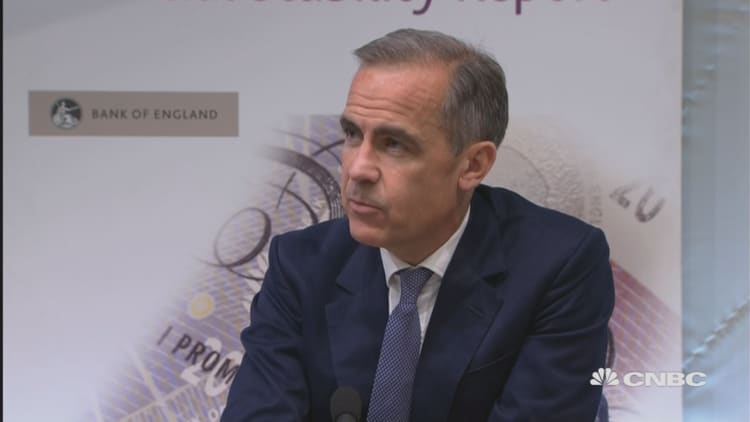After a week of woes for U.K. commercial property funds that pushed the pound towards a 31-year low, analysts and industry experts have pointed to a flaw in the design of these funds.
"Open-ended funds are simply not suitable for illiquid assets such as commercial property," Danny Cox, a chartered financial planner at Hargreaves Lansdown, told CNBC via email.
Cox explained that during the good times the money floods in and managers buy properties that they may not want – but as money washes out, they become forced sellers.
"Close-ended funds are much more suitable to gain exposure to commercial property, but even then they aren't perfect," Cox said.
An open-ended fund functions like a collective investment scheme that can issue and redeem shares at any time; however a closed-ended fund works like a publicly traded company that is a structured, listed and traded like a stock on a stock exchange.
Seven U.K. funds have suspended dealing after receiving high demand from investors to cash in their investments due to volatile market conditions in the wake of the U.K.'s vote to leave the European Union. These belong to Aberdeen Asset Management, Standard Life, Aviva, M&G Investments, Henderson Global Investors, Columbia Threadneedle and Canada Life. All seven funds were open-ended with exposure to commercial property.
Aberdeen Asset Management announced on Monday that it would keep the suspension in place for two more days. The seven funds hold a total of around £15 billion ($19 billion) in investor money.
Guidance from the watchdog
On Friday last week, the Financial Conduct Authority (FCA) – the U.K.'s City watchdog – released a guidance note reminding fund managers of their duty to act in the best interests of investors by using a range of tools through periods of market disruption.
"It is the duty of the fund manager to ensure that assets are valued fairly and accurately and to ensure that any subscriptions or redemptions of units take place at a fair price. Failure to do so may lead to some investors gaining at the expense of other investors in the same fund," the FCA said.
The FCA said fund managers that had suspended dealings would need to consider when to resume in the interest of investors. It added that fund managers must clearly communicate with investors on the range of options available to them during the fund's suspension.
"Funds holding a large proportion of assets that may be, in certain circumstances, illiquid or hard to value, such as commercial property, may consider that the suspension should be lifted and investors given the opportunity to redeem at a revised valuation of the units in the fund," the FCA said.
It requested that managers of authorised funds contact the FCA in advance of any proposed suspension.
At a Bank of England media conference last week, FCA CEO Andrew Bailey said funds' ability to suspend dealings created a pause to allow an orderly process of revaluation without differential treatment of investors. He added that he believed the structure of open-ended real estate funds needed to be reviewed.

"Open-ended property funds work for those who are happy to take a long-term view of commercial property investment and accept that at times they may not be able to access their money," Hargreaves Lansdown's Cox told CNBC.
Cox added that it was important to take financial advice when investing in these funds. "It is incumbent upon IFAs (independent financial advisers) and other distributers to ensure clients understand the liquidity risks. It is easy to lose sight of these risks when you are seeing funds delivering double-digit returns."
While some analysts have said it is the responsibility of the fund manager to ensure appropriate measures are taken in difficult market conditions, others think financial advisers should clearly explain the risks to investors.
"The responsibility should be passed onto the advisers," Kusal Ariyawansa, a certified financial planner at wealth management firm Appleton Gerrard told CNBC via email.
"It is the adviser's job to decide the allocation (if any) to property funds. If the investor needs immediate access to the money, they shouldn't be investing in the first place. If they have made an execution only call, they can't expect sympathy from a fund manager, CEO or the regulator . . . the risks are clearly explained," he said.


